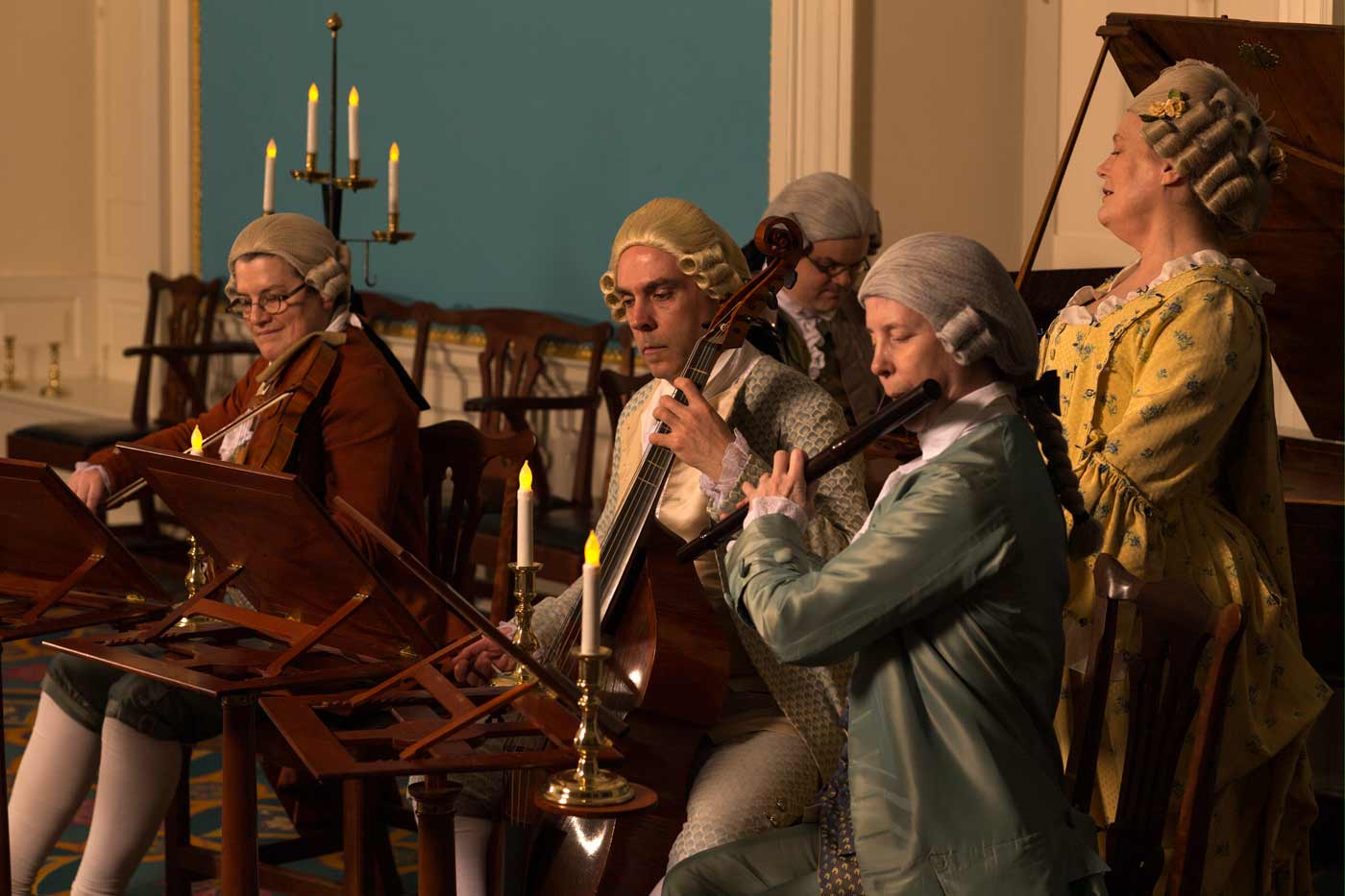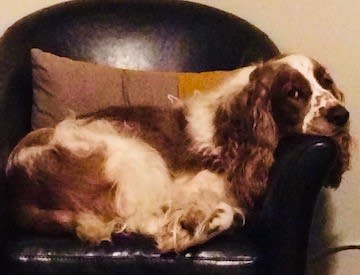A Look at Where Music was Made in 18th-Century Williamsburg
One of the many things I love about being a music historian is that I have almost no say in how my research turns out. That may seem like a strange sort of job satisfaction, but there is no end to the twists and turns of history: behind everything written about Italian musical style or English musical style there were human beings whose lives were spent making music in one way or another, and it is the accumulation of their stories that create history, not the other way around.
I began working at Colonial Williamsburg about 15 months ago as the soprano with The Governor’s Musick, Colonial Williamsburg’s historical performance ensemble. My music history education was almost entirely Euro-centric, and I had some catching-up to do regarding the North American colonies in general, and Virginia and Williamsburg in particular. The Foundation started me off with a great overview of the basics, and my colleagues are an amazing fount of knowledge about musical life here in the eighteenth century. But, since I found myself with incredible resources and new things to explore, down the rabbit hole I jumped. (whee!)

There are so many disparate pieces of musical life in 18th-century Williamsburg that it’s difficult to see how they fit into a whole. I don’t have enough background in African American music history to be able to work competently on that very important aspect, but I have been able to look at the parts of the puzzle that today we call Classical music.
I ended up going back to the beginning—not the beginning beginning, but to one big reason why English music life, and by extension Williamsburg’s, was different from the rest of Europe: the English Civil War (1642 - 1651) and the ensuing Interregnum (literally, “between kings”), which lasted to 1658. Because the Roundheads (supporters of Parliament) won out over the Royalists (supporters of…well, you can guess), the professional classes and gentry were in charge, and even the restoration of the monarchy was only with Parliament’s consent. The power was with the people. (Well, some of the people.)
Add to this the rising wealth in European cities in general and, with that, the Age of Enlightenment equivalent of the service economy: merchants, lawyers, middlemen. Gadgets were invented and improved to increase production. Goods and supplies came in from all parts of the globe. The world was becoming much more consumer-oriented, and nowhere more than England, which had a weakened monarchy and a Parliamentary system that empowered both peers and commoners.
What did this mean to music history? There had always been public entertainment events in England and throughout Europe. (The Globe Theatre comes to mind.) But the rise in wealth among both the professional classes and what you hear referred to in Williamsburg as the “middling sort” meant that performances became dependent more upon public venues than on the patronage system that financed much of music throughout the rest of Europe.
Musicians and managers realized that a lot more people had money to spend, and they were more than willing to supply them with entertainment. European musicians flocked to England to work. Eighteenth-century music theorist Johann Mattheson wrote, “The Italians exalt music; the French enliven it; the Germans strive after it; the English pay for it well.” The publishing industry in England expanded rapidly, reprinting works by English and Continental composers and selling them to the public at large.
Music could be heard everywhere. Theater companies’ productions included musical preludes and interludes, and a Shakespeare play might be followed by a ballad opera (a sort of precursor to operetta), a concerto and an aria or two. (An evening’s offerings often ran to five hours.) Entrepreneurs invested in performance spaces and put on concerts, with dancing afterward to further entice customers. Taverns held concerts. Musicians were persuaded to perform with the promise of extra concerts in which the musicians kept the take: these were advertised as “benefits” for the performers and almost never associated with charities, like we think of them today. This is not to say that social status didn’t matter: attending the Royal Opera was out of reach for most people, and higher-quality performers commanded high fees. That said, if you had the coin, you could get in!
Outside of London and a few other cities (notably Dublin), however, there simply was not the population to support professional music-making, and most of it was done by amateurs —very good amateurs, it must be said, but unpaid nonetheless — for the private amusement of those who had the time and inclination to learn an instrument.
And now, for me, the Williamsburg picture starts to come more into focus. Concerts at the Raleigh Tavern and Capitol Building, with dancing afterward, were advertised in The Virginia Gazette. Governor Fauquier put on private concerts at the Governor’s Palace with gentry amateur musicians like Thomas Jefferson and Robert Carter. The English actor Lewis Hallam built a theater in Williamsburg but sent his niece Nancy back to England to study singing with the famous composer Thomas Arne. Musicians arrived and advertised their services in the paper. A benefit concert was held for Peter Pelham, the organist at Bruton Parish Church. Instruments and music were advertised for sale at the Post Office. All these types of music-making have a direct link to the English musical landscape, which was shaped by political and economic factors.
In 1771, landowner Landon Carter wrote after visiting Williamsburg, “From every house a constant tuting may be listned to upon one instrument or another, Whilst the Vocal dogs will no doubt compleat the howl.” I’m not sure if he was referring to the howling of singers like me or the reaction of the local canine population, but if it’s the former I don’t take offense. My dog Mr. Bingley (handsome and good-natured, but not in want of a wife) thinks I howl just fine.

Karol Steadman is the soprano with The Governor’s Musick, with a background in Historical Performance Practice and Music History. Her father was an engineer and her mother was an English teacher and history buff, so, she says, “there was really was no hope for me.” Her dog Bingley, a Welsh Springer Spaniel, is a Velcro dog, stuck to her side until a squirrel appears. As you can probably tell, she’s read all of Jane Austen’s novels at least twice.
